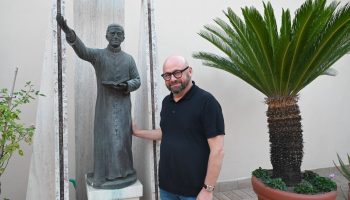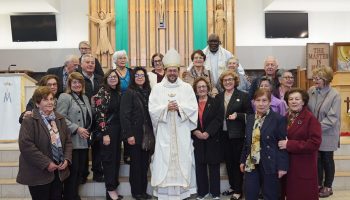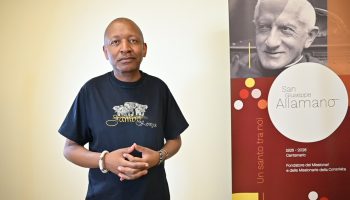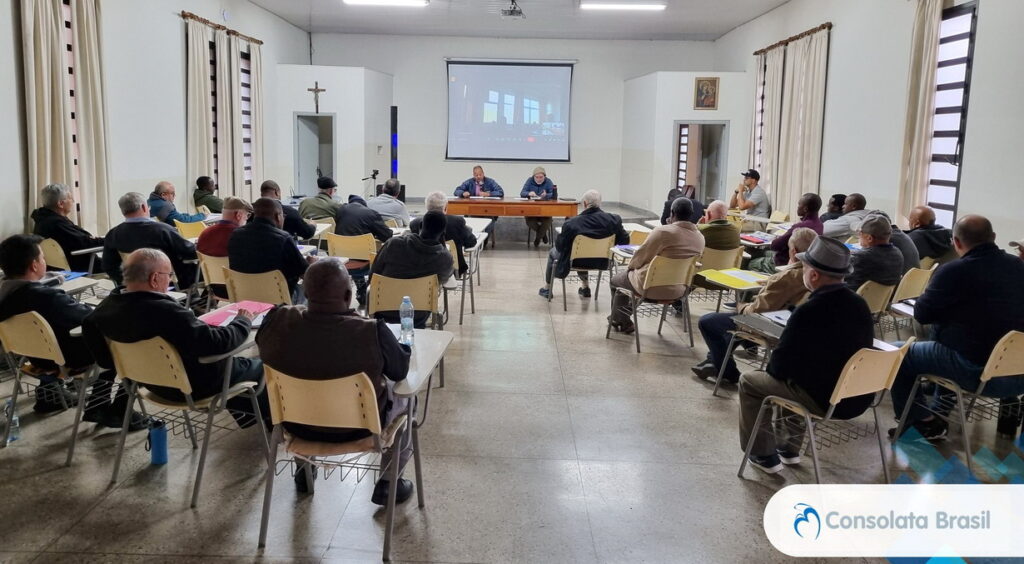
The Consolata Missionaries operating in Brazil gathered from June 9 to 13 for their electoral assembly and to reflect on their missionary commitment across the vast Latin American territory. The meeting was held in a hybrid format, with one group in São Paulo and another in Boa Vista, Roraima (3,378 km apart). During the gathering, the missionaries elected the new Regional Council for the next three years.
By Júlio Caldeira *
“The Assembly was an important moment to strengthen unity among the missionaries and to outline the guidelines for the future of the mission in Brazil,” said Father Paulo Mzé, the Regional Superior, who was re-elected for another three-year term.
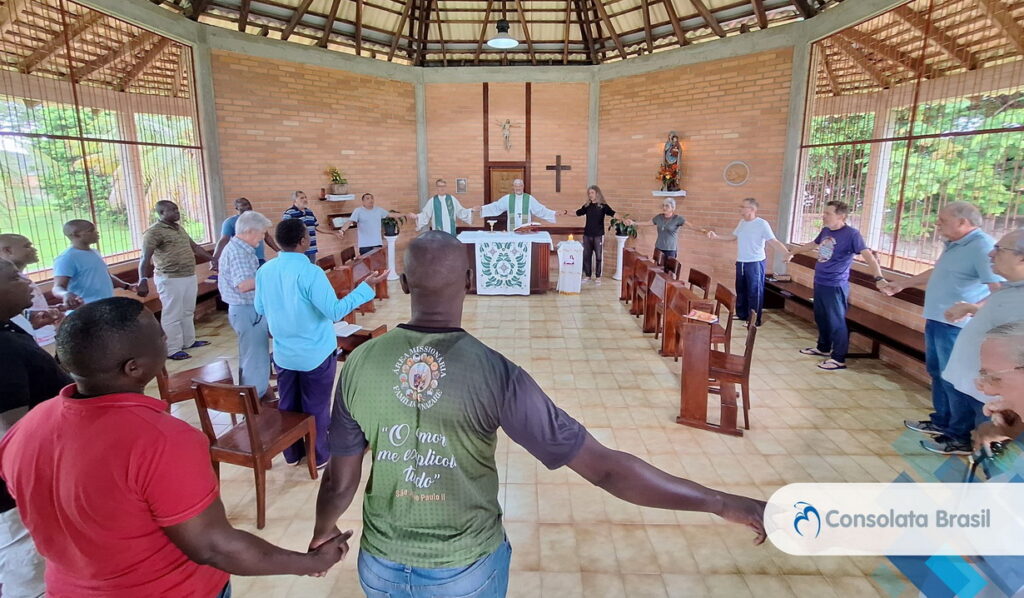
Missionary Options
The Consolata Missionaries in Brazil work on various fronts: indigenous and Amazonian pastoral ministry, with a presence in the states of Roraima and Amazonas; urban and peripheral pastoral ministry with 12 parishes; and Afro-Brazilian pastoral work that values Afro culture. The Region also provides formation for students in the seminaries in São Paulo, Curitiba, and the Novitiate in Manaus; missionary formation of the local Church; youth and vocation promotion; and assistance to migrants and refugees, especially in Boa Vista.
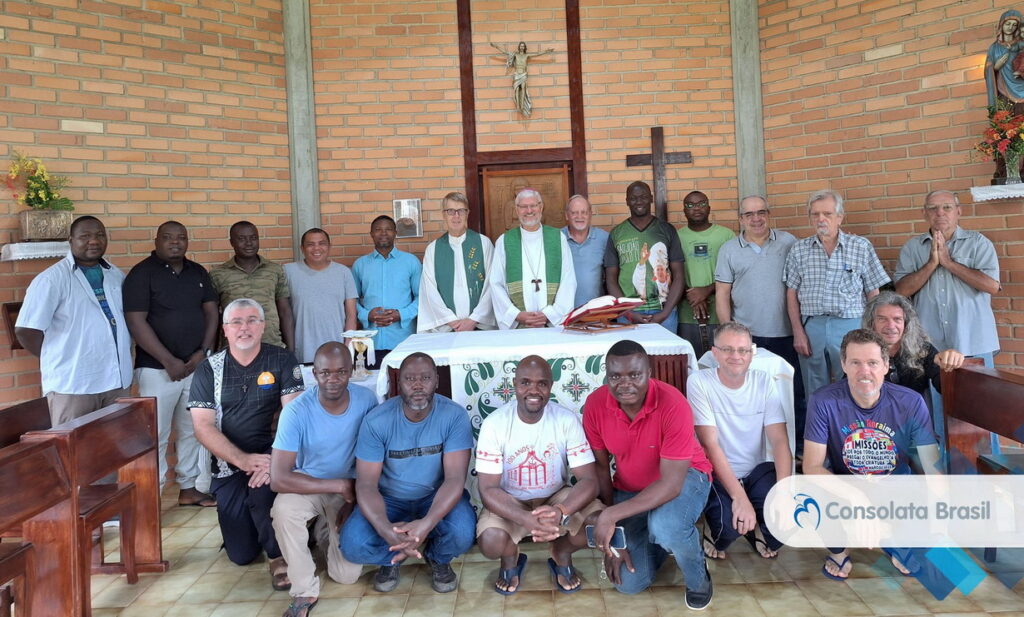
Communication is facilitated through the magazine Missões and digital communication tools. Inspired by the Founder, St. Joseph Allamano, the missionaries strive to live an economy for the mission and maintain their social and ecclesial commitments in collaboration with various organizations.
New Regional Council
On June 12, Father Paulo da Conceição Fernando Mzé was re-elected as Regional Superior for a second term, which will last until 2028. Born in Mozambique, Father Paulo has been in Brazil since 2000 and has a long missionary career, with experience in São Paulo, Paraná, and as director of the Missões magazine.
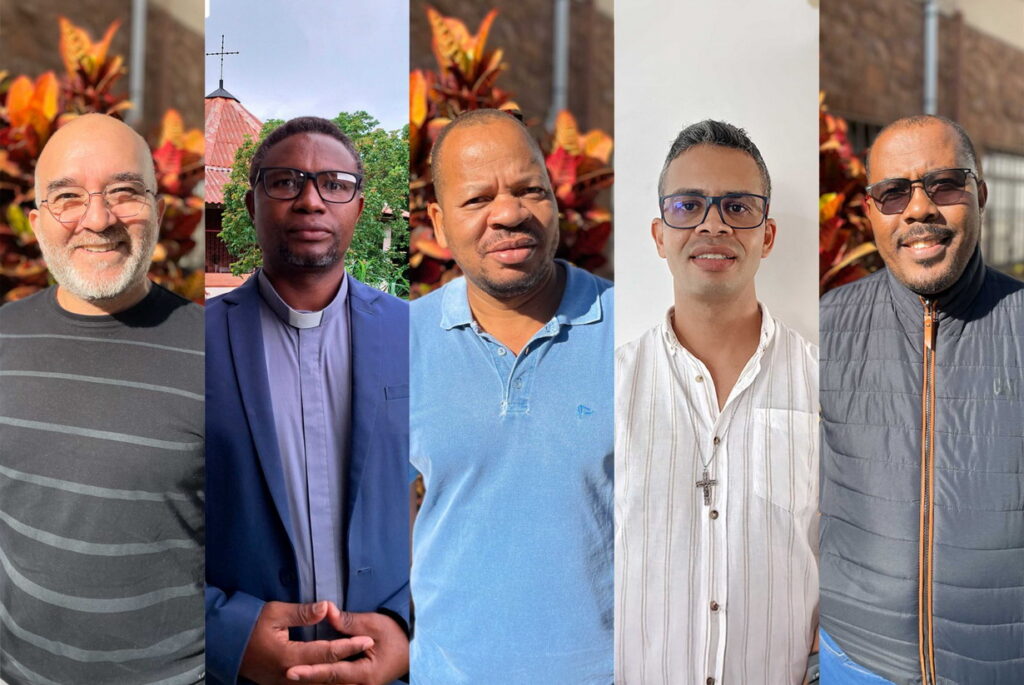
The new Regional Council was also elected, tasked with collaborating with the Regional Superior in animation, discernment, and coordination of activities in the Brazil region. The elected Council includes missionaries of different nationalities and backgrounds:
Vice Superior: Father James Murimi Njimia (Kenya), active in indigenous pastoral ministry in Roraima. Councilors: Father Luiz Antônio de Brito (Brazil), pastor in Matinha dos Pretos, Feira de Santana (BA); Father Luís Maurício Guevara (Argentina), rector of the theological seminary “Padre João Batista Bisio” in São Paulo: Father Tamrat Markos Mitore (Ethiopia), pastor of the São Paulo parish in Cascavel, Paraná.
During the Assembly, the Bishop of Roraima, Mons. Evaristo Spengler, expressed deep gratitude for the work of the missionaries in the Amazon and in his diocese, highlighting their generosity, dedication, and witness of faith, especially among indigenous communities.
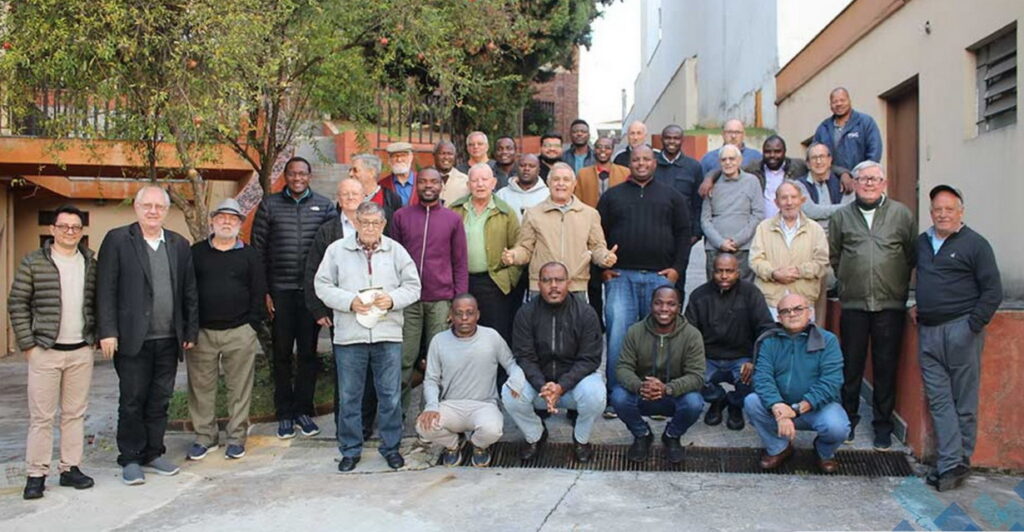
Bishop Evaristo Spengler
In his biblical reflection, he emphasized the importance of living a faith that is authentic and consistent with the Gospel. Citing St. Paul’s letter to the Corinthians and the Gospel of Matthew, the bishop encouraged the missionaries to be “the salt of the earth and the light of the world,” living the present with faithfulness to the Gospel. Inspired by the motto “First saints, then missionaries,” used during the canonization of St. Joseph Allamano, Mons. Spengler reminded them that holiness is the foundation of true mission and also called on the Holy Spirit to guide and strengthen the evangelizing mission of the Consolata Missionaries.
The Consolata Missionary Institute arrived in Brazil in 1937 in São Manuel, São Paulo. Today, it has 82 members (two novices, 18 professed students, four brothers, 56 priests, and two bishops), working in 22 communities across the states of Amazonas, Bahia, Brasília, Paraná, Rio de Janeiro, Roraima, and São Paulo.
* Father Júlio Caldeira, IMC, missionary in Manaus

